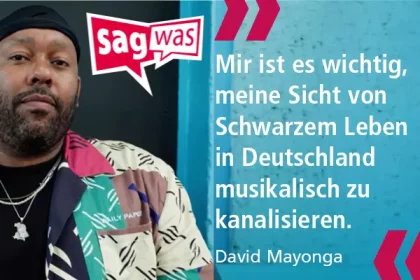ENDitorial: A system you never heard of undermined net neutrality

Trialogues. You may never have heard of them but they’re the single biggest threat to the credibility of European Parliament’s claim to be a democratic institution. Net neutrality explains why.
In September 2013, the European Commission produced its half-baked anti-net neutrality/spectrum/user-rights/roaming proposal. The European Commission believed that the “end of roaming” was such an attractive headline ahead of the 2014 European Parliament elections that the Parliament could be rushed into supporting the package. It was right. In April 2014, the Parliament adopted the package but, contrary to the expectations of the Commission, voted to protect net neutrality.
Then, after the 2014 elections, the disaster struck. The newly-elected Industry Committee of the European Parliament gave Pilar Del Castillo, Member of the European Parliament (MEP), a mandate to negotiate with the Council on an expedited agreement with the Council of the European Union (the EU Member States) under the so-called “trialogue” process. Instead of waiting for the Council to adopt its position on the proposals, the Parliament would engage in secret closed-door meetings with the Member States to reach an agreement, which then could be rubber-stamped by both sides.
For the European Parliament, there is a public and a private advantage of the trialogue process. The public advantage is that, by reaching an agreement with the Council that will be rubber-stamped, the legislative process becomes quicker and, allegedly, “more efficient”. The private advantage is that unpopular decisions can be made in a bureaucratic fog, where no individual can be held liable, and months before the rubber-stamping process (which attracts media attention) takes place.
EDRi campaigned vigorously to have net neutrality in the European Union, including during the trialogue process. From February (when the Council agreed its negotiating position) to June of 2015, EDRi and our partners in the SavetheInternet.eu campaign were campaigning furiously, meeting with the Council Presidency and key individuals in the Parliament, obtaining and commenting on draft after draft of proposals and counter-proposals – often with little more than a few hours to provide comprehensive commentary on extensive legal texts. The lack of a specific end-date and clarity about what was actually happening in the closed-door meetings made a public campaign virtually impossible.
The trialogue system is so opaque that, even when the trialogue process produced an agreement in June 2015, there was no press attention. Besides our blogposts and press releases warning about the situation, there was no outcry at the weak, ambiguous text that would put free speech, innovation and the interests of start-ups at risk. The opaque, closed, undemocratic, bureaucratic nature of the trialogue process had successfully killed off any meaningful public debate. With the Socialist (S&D), Conservative (EPP/ECR) Groups in the European Parliament (representing 62% of MEPs) having given their approval, it would have taken a miracle to pass amendments in the rubber-stamping Parliament plenary session on 27 October.
While the outcome is far from ideal, the good news is that this is still vastly better than unambiguously destructive, anti-competitive, anti-citizen, anti-innovation proposals being put forward by the Council and Commission for the entire history of the process. A small number of dedicated activists achieved this partial success against the odds during the entirety of this awful process. We remain in this process during the important next stage – the development of the implementation guidelines by the Body of European Regulators (BEREC).
EDRi: EU Council proposals on protecting the open internet – Episode 1, the phantom neutrality (05.03.2015)
https://edri.org/eu-council-proposals-protecting-open-internet-episode-1-phantom-neutrality/
EDRi: EU Council proposals on open internet – Episode 2, the clown wars (06.03.2015)
https://edri.org/open_internet_clownwars/
EDRi: NOW OR NEVER: European citizens stand up to save the internet (13.04.2015)
https://edri.org/european-citizens-stand-up-to-save-the-internet/
EDRi: Net Neutrality – Save the Internet relaunch (22.04.2015)
https://edri.org/net-neutrality-save-the-internet-relaunch/
EDRi: Net neutrality – is the European Parliament ready to accept complete failure? (25.05.2015)
https://edri.org/net-neutrality-fail/
EDRi: Net Neutrality – building on success (01.06.2015)
https://edri.org/net-neutrality-non-compromises/
EDRi: Startups for Net Neutrality (03.06.2015)
https://edri.org/startups-for-net-neutrality/
EDRi: European Parliament considering yet another compromise on net neutrality (11.06.2015)
https://edri.org/compromising-on-net-neutrality/
EDRi: Council confirms it wants to trade net neutrality for end of roaming charges (12.06.2015)
https://edri.org/council-confirms-it-wants-to-trade-net-neutrality-for-end-of-roaming-charges/
EDRi: Net neutrality in critical danger in Europe. The time to act is NOW! (22.06.2015)
https://edri.org/net-neutrality-in-critical-danger/
EDRi: Democratic support for net neutrality is clear, as is Council’s stubbornness (25.06.2015)
https://edri.org/democratic-support-for-net-neutrality-is-clear-as-is-councils-stubbornness/
EDRi: Press release: Father of net neutrality warns EU’s proposals may “guarantee US dominance” online (22.06.2015)
https://edri.org/father-of-net-neutrality-warns-eus-proposals-may-guarantee-us-dominance-online/
EDRi: Blurry, ambiguous “net neutrality” deal is an abdication of responsibility (30.06.2015)
https://edri.org/blurry-ambiguous-net-neutrality-deal-is-an-abdication-of-responsibility/
(Contribution by Joe McNamee, EDRi)
AUTHOR: Joe McNamee is Executive Director of European Digital Rights, the umbrella organisation for digital civil rights organisations in Europe. He has been working in the internet sector almost continually since 1995 and has a particular interest in issues related to privacy, “voluntary” regulation of citizens by internet companies and the application of human rights law in the online environment.


